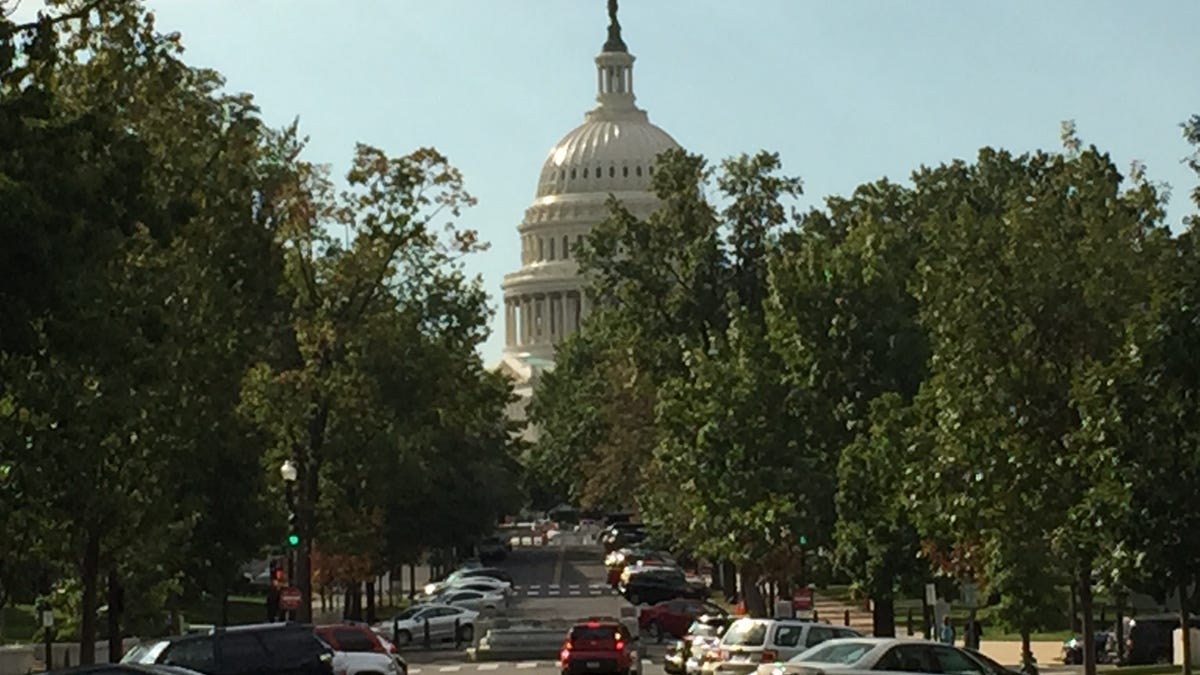House passes bill to stop robocalls
In a political climate when Democrats and Republicans can't agree on anything, the bill to stop illegal robocalls passed 417-3.

The House knows we all hate robocalls.
If there's one thing that politicians on Capitol Hill can agree on, it's that robocalls must be stopped. On Wednesday, the House of Representatives almost unanimously passed a bill to help put the kibosh on robocalls.
The vote on the Pallone-Thune Telephone Robocall Abuse Criminal Enforcement and Deterrence Act, also known as the TRACED Act, comes as a sharply divided House considers articles of impeachment for President Donald Trump.
But on the issue of robocalls, both parties were almost unanimously united with a vote of 417-3 in favor of the bill. The bill was named after the lawmakers who helped lead it in the House and Senate, Rep. Frank Pallone Jr., a Democrat from New Jersey, and Sen. John Thune, a Republican from South Dakota.
"In today's political climate, it's hard to find an issue on which almost everyone can agree, but we found one with the TRACED Act," Thune said in a statement. "With House passage of our bipartisan, bicameral legislation to protect consumers from pesky and sometimes financially harmful robocalls, we are one step closer to getting this legislation to the president's desk."
Reps. Justin Amash, an independent from Michigan, Andy Biggs, a Republican from Arizona, and Thomas Massie, a Republican from Kentucky, voted against the bill. Massie had said previously he wouldn't support robocall legislation because he feared it gave the Federal Communications Commission too much authority.
The bill was the result of a compromise worked out by leaders from the House and Senate.
The TRACED Act helps address problems with robocalls in several ways. It increases penalties for bad actors knowingly initiating illegal robocalls. It requires phone companies to authenticate calls to determine if the number calling you is real. If a call can't be authenticated, it requires phone companies to alert customers and allow them to block calls. It gives regulators like the FCC and the Federal Trade Commission more time to go after scammers and penalize them more aggressively. And it pushes the US Department of Justice to go after illegal robocallers.
The bill comes as complaints about robocalls keeps growing. More than 49 billion robocalls have been made in the US so far this year, according to YouMail. Many of these calls are from scammers, and they're clogging phone systems. Hospitals have reported a huge increase of spam robocalls, which experts say hampers communication and patient treatment.
"This is important legislation because unlawful robocalls are not only a nuisance, they are also undermining our entire phone system and consumers' safety as a result," Pallone said in a statement.
Federal, state and local authorities have also been working to curb illegal robocalls. Earlier this year, the FCC voted to allow phone companies to block suspicious calls by default.
Last month, attorneys general from all 50 states and Washington, DC, joined 12 phone companies in announcing an effort to combat robocalls. Companies, such as AT&T, Verizon, T-Mobile and Comcast, are implementing call-blocking technology at no extra cost to customers.
"Robocallers are officially on notice," said Robert Fisher, Verizon senior vice president of federal government affairs. "This legislation will ensure widespread call authentication, the ability for end users to block any and all unwanted calls, and creates stronger enforcement mechanisms and increased penalties for the bad actors responsible for these annoying and harassing robocalls."
Robocalls use autodialers and recorded messages to make millions of phone calls. Often the numbers that show up in caller ID appear to belong to friends or neighbors, when they're actually "spoofed." These calls hide the real number to trick people into answering the call. Carriers will now implement a new technology protocol called SHAKEN/STIR to validate that calls are originating from where they claim to be coming from and would allow for faster tracing of illegal calls to find out who's responsible for them.
The Senate passed a similar bill earlier this year, which means the legislation could soon move to the president's desk. Thune said he is ready for the next steps.
"We'll keep working for more protections above and beyond this bill to crack down on robocalls," Thune said.

